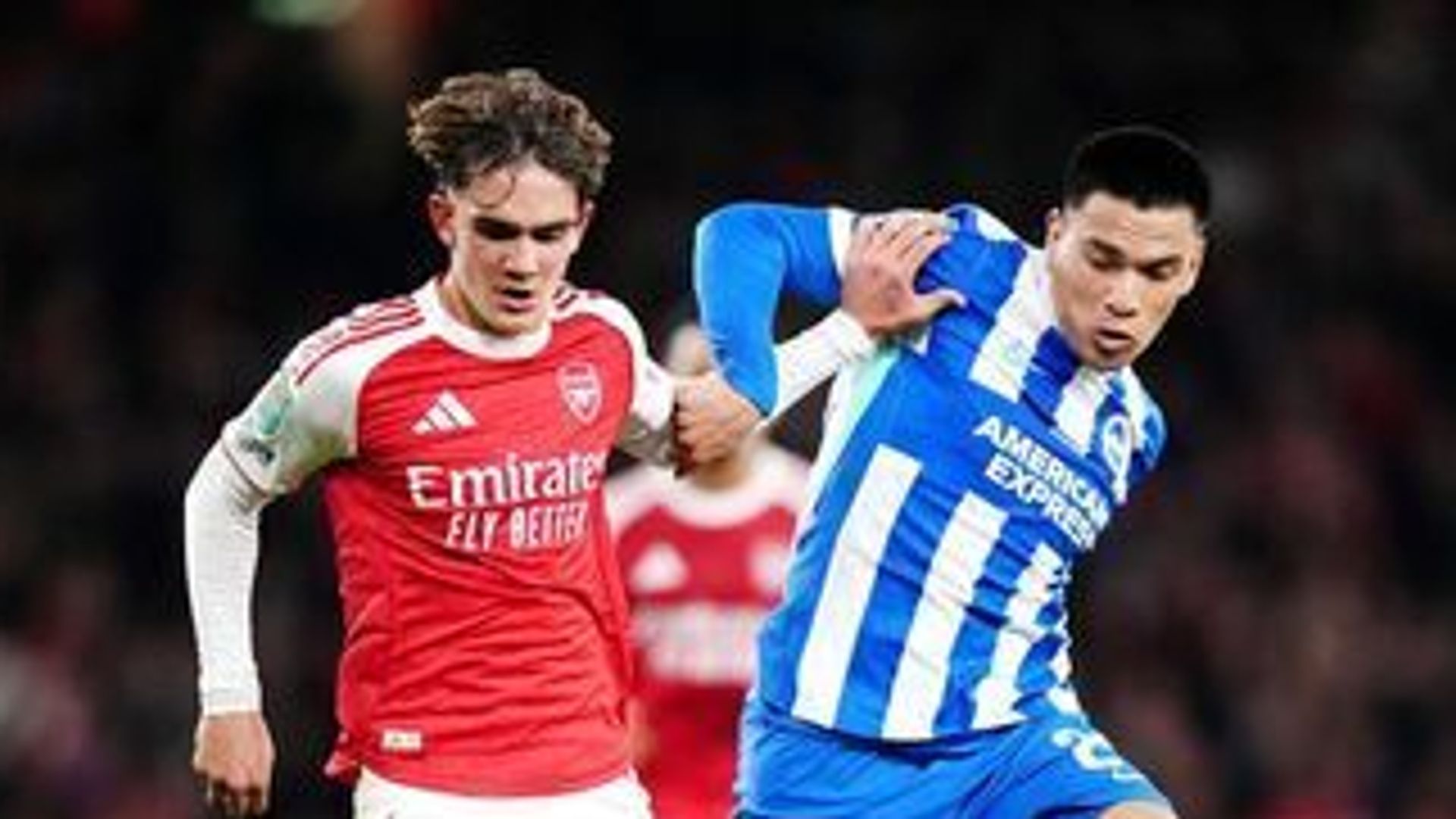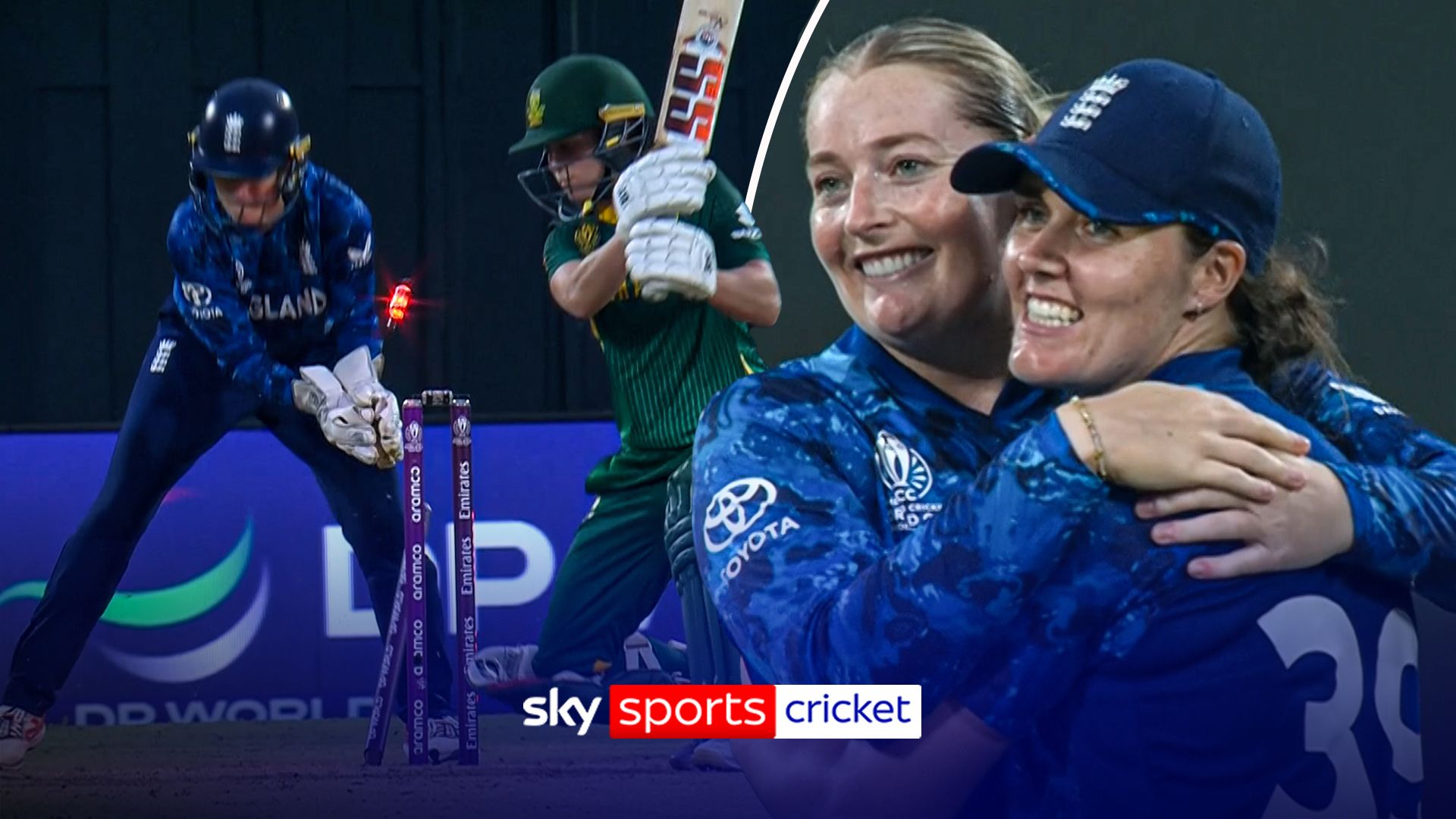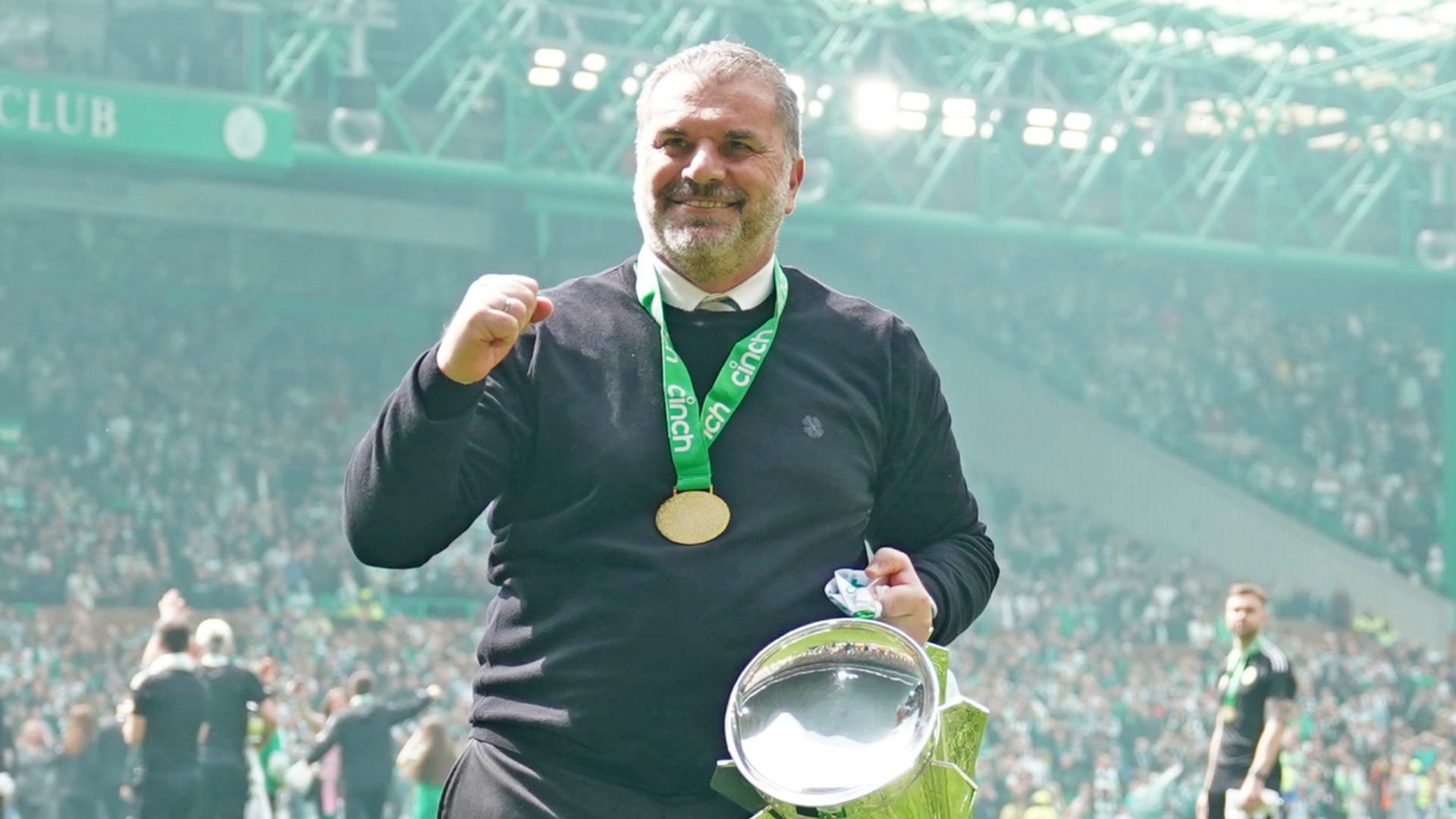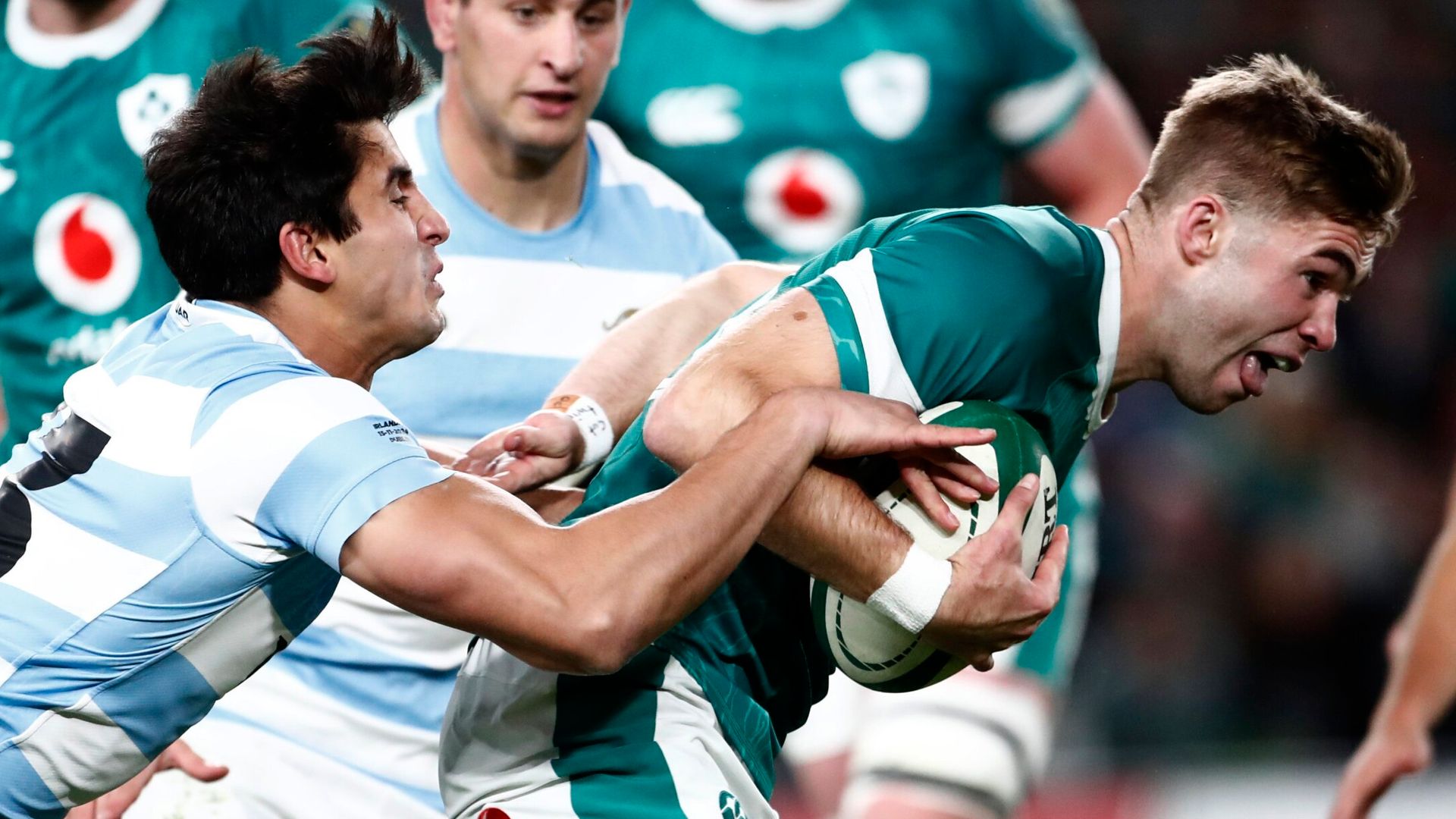Arsenal’s 15-Year-Old Max Dowman: A New Messiah or Reckless Gamble in Football’s High-Stakes Arena?
In a striking moment for Arsenal Football Club, 15-year-old Max Dowman has emerged as a player poised to make history. The young talent recently contributed to a 2-0 victory over Brighton in the Carabao Cup fourth round, a match that not only showcased his skills but also ignited conversations around youth involvement in top-tier football. Manager Mikel Arteta has expressed confidence in Dowman’s readiness to compete in both the Premier League and Champions League, a bold assertion that raises eyebrows and divides opinions among fans and analysts alike.
The rise of young players in professional football is not a new phenomenon. Clubs have historically sought to integrate youth talent into their squads, often with varying degrees of success. Yet, Dowman’s case is particularly intriguing, given the pressures and expectations placed on players at such a tender age. The narrative surrounding young athletes has evolved, with many viewing them as potential saviors for clubs struggling to find their footing. However, this trend also raises critical questions about the sustainability of relying on teenagers in high-stakes environments.
Arsenal, a club steeped in history and tradition, has long been known for its commitment to developing young talent. The Gunners’ famed youth academy has produced a plethora of stars over the years, from Tony Adams to Cesc Fabregas. Yet, the current football landscape presents a different set of challenges. With financial pressures mounting and the competition becoming increasingly fierce, the stakes are higher than ever. The question arises: Is it wise to thrust a 15-year-old into the spotlight, or is this a reckless gamble that could backfire?
Arteta’s endorsement of Dowman signifies a shift in strategy for Arsenal, echoing a broader trend seen across Europe. Clubs like Barcelona and Borussia Dortmund have successfully integrated young players into their squads, often reaping the rewards of their investments. However, these clubs also have robust support systems in place, ensuring that young talents are nurtured rather than overwhelmed. The concern for Arsenal lies in whether they can provide the same level of support for Dowman, who is still navigating the complexities of adolescence alongside the rigors of professional football.
The psychological toll on young athletes cannot be understated. The pressure to perform, coupled with the scrutiny from fans and media, can lead to burnout and mental health issues. Dowman’s situation is emblematic of a larger trend in sports, where the expectation for immediate results often clashes with the need for gradual development. Critics argue that clubs must prioritize the long-term well-being of their players over short-term gains, advocating for a more measured approach to youth integration.
Furthermore, the financial implications of Dowman’s rise cannot be ignored. As football clubs increasingly rely on their youth academies to deliver talent, the economic stakes are intertwined with the performance of these young players. A successful debut can elevate a player’s market value, leading to lucrative transfers and sponsorship deals. Conversely, a failure to meet expectations can result in significant financial losses for the club. This creates a precarious environment where the pressure to succeed can overshadow the developmental needs of young players.
In the case of Arsenal, the club’s financial health has been a topic of discussion in recent years. The transition from the Emirates Stadium’s construction debt to a more stable financial footing has been challenging. As a result, the reliance on homegrown talent like Dowman becomes even more critical. The club’s ability to nurture and develop young players could play a pivotal role in its financial sustainability moving forward.
The broader implications of Dowman’s debut extend beyond Arsenal’s immediate concerns. The integration of young players into elite teams is a reflection of changing attitudes within football. As clubs increasingly prioritize youth development, the balance between experience and youth becomes a focal point of strategy. Dowman’s situation may serve as a litmus test for how clubs navigate this delicate balance, particularly in an era where instant gratification often trumps patience.
Moreover, the cultural significance of youth players in football cannot be overlooked. The narrative of the young prodigy resonates deeply with fans, evoking a sense of nostalgia and hope. Players like Lionel Messi and Wayne Rooney have become legends not just for their skill but for their journeys from youth academies to superstardom. Dowman’s emergence could ignite a similar narrative, captivating the imaginations of supporters and inspiring a new generation of footballers.
However, the potential pitfalls of such narratives are also evident. The romanticism surrounding young players can lead to unrealistic expectations, where fans and pundits demand immediate results. Dowman’s journey will undoubtedly be closely scrutinized, and any misstep could result in harsh criticism. This raises the question of whether the football community is prepared to support young talents through their growing pains or if they will be quick to cast judgment in the face of adversity.
As Dowman continues to develop, the focus will inevitably shift to how Arsenal manages his integration into the first team. The club must navigate a myriad of factors, including the team’s performance, Dowman’s personal growth, and the expectations of fans and stakeholders. Striking the right balance will be crucial, as the potential for success is matched only by the risks involved in placing a young player in such a demanding position.
In the end, the narrative surrounding Max Dowman serves as a microcosm of the broader themes at play in modern football. The intersection of youth, pressure, and financial implications creates a complex landscape where clubs must tread carefully. As Arsenal looks to the future, the decisions made regarding Dowman will not only shape his career but could also redefine the club’s approach to youth development for years to come. The footballing world watches closely, eager to see whether Dowman will rise to the occasion or become another cautionary tale in the annals of sports history.




